Aluminium Alloys: moving boundary problems ( figures)
Pierre Pinson
Location:
Delft University of Technology
Start of the project: September 2001.
End of the project: February 2002.
Here is the literature study and the
final report.
This project is done within the
Erasmus exchange programme with Institut National des Sciences
Appliquees (
INSA) Toulouse.
Summary of the master project:
As-cast aluminum alloys often contain particles and other
inhomogeneities, which deteriorate the mechanical properties both for
further processing and final use. These inhomogeneities can be removed
with a thermal treatment, during which the metallurgical state
of the material changes. These changes can either involve the
dissolution or morphology of the various phases.
Recently we started to study morphology changes of the various
phases. We consider the transformation of plate-shaped particles
(Al5FeSi)
into spherical-shaped particles (Al12Fe3Si). For this problem two or
three dimensional configurations are required. We have done
some numerical experiments to approximate the moving boundary.
During this stage work has been done on the following subjects: compare the
numerical solution with measurements (form of the boundary via photos
of the micro-structure, concentrations, etc.). A comparison of the
numerical solution with an analytical solution for a simple geometry.
Finally we have observed (as expected) instabilities in the form of the
moving boundary. The question is does these instabilities occur always,
or is there some parameter, which influences the occurrence of
instabilities?
Measurements
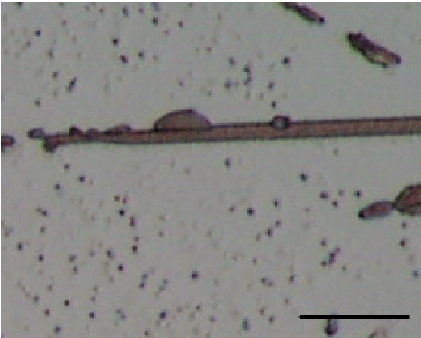
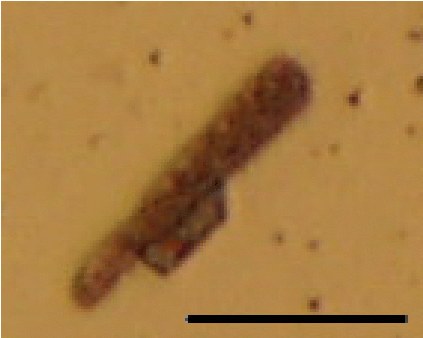
Alpha particle on beta plate
Faceted particle on beta plate
Results of numerical simulations
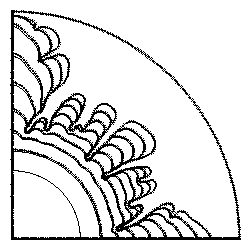
Instabilities in the growing particle. When the Gibbs-Thomson effect is
included in the mathematical model the curves are smooth.
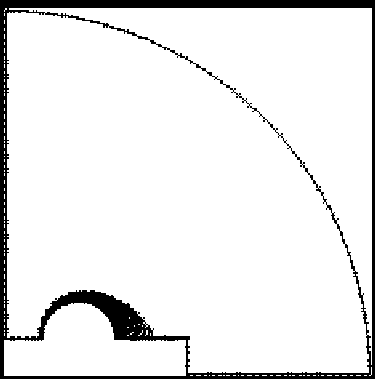
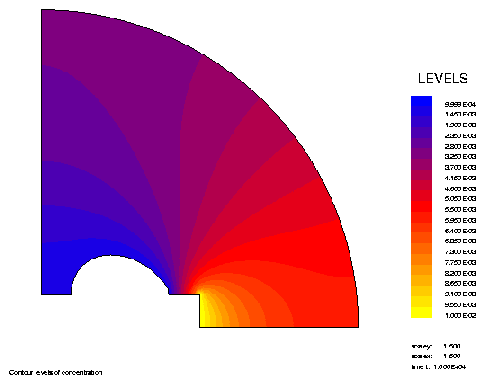
Growth of the particle - position
Concentration profile at the end

Contact information:
Kees
Vuik
Back to the
home page
of the
Master students page of Kees Vuik





![]()